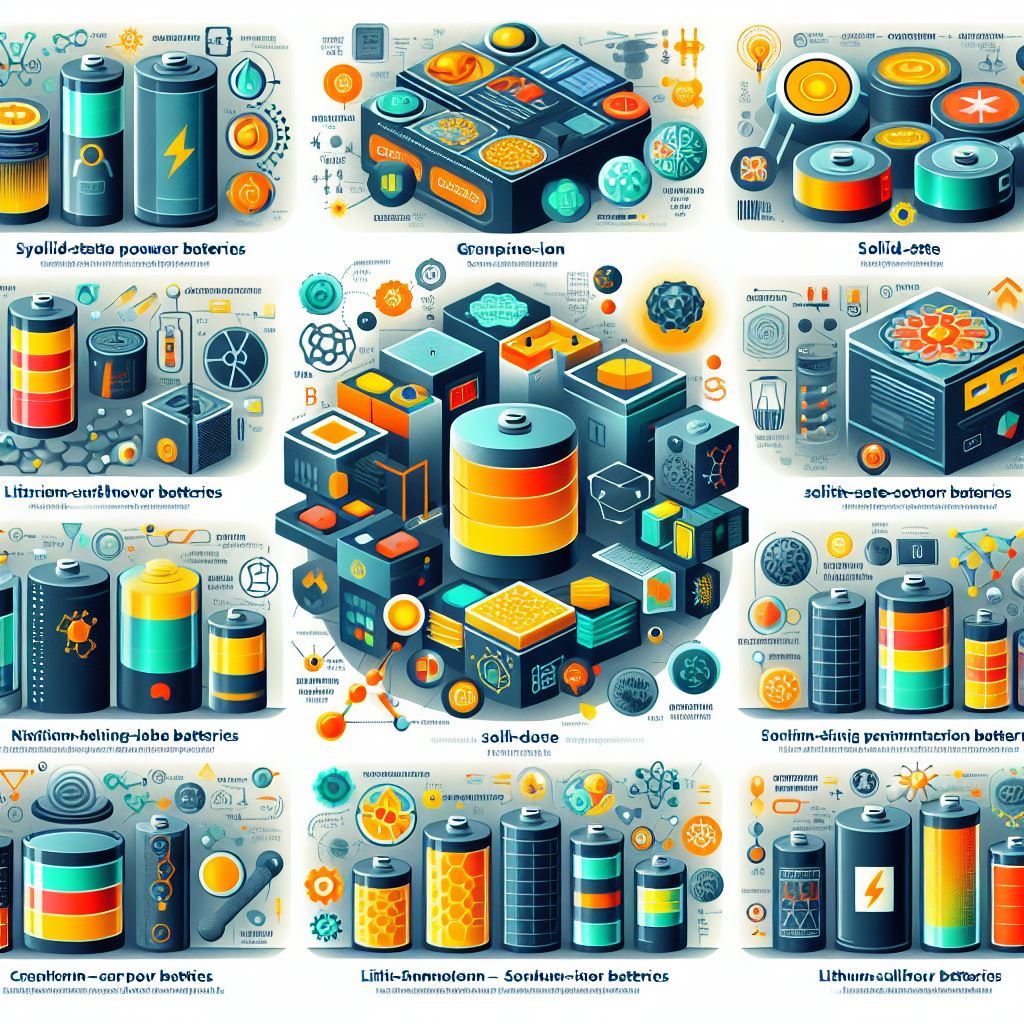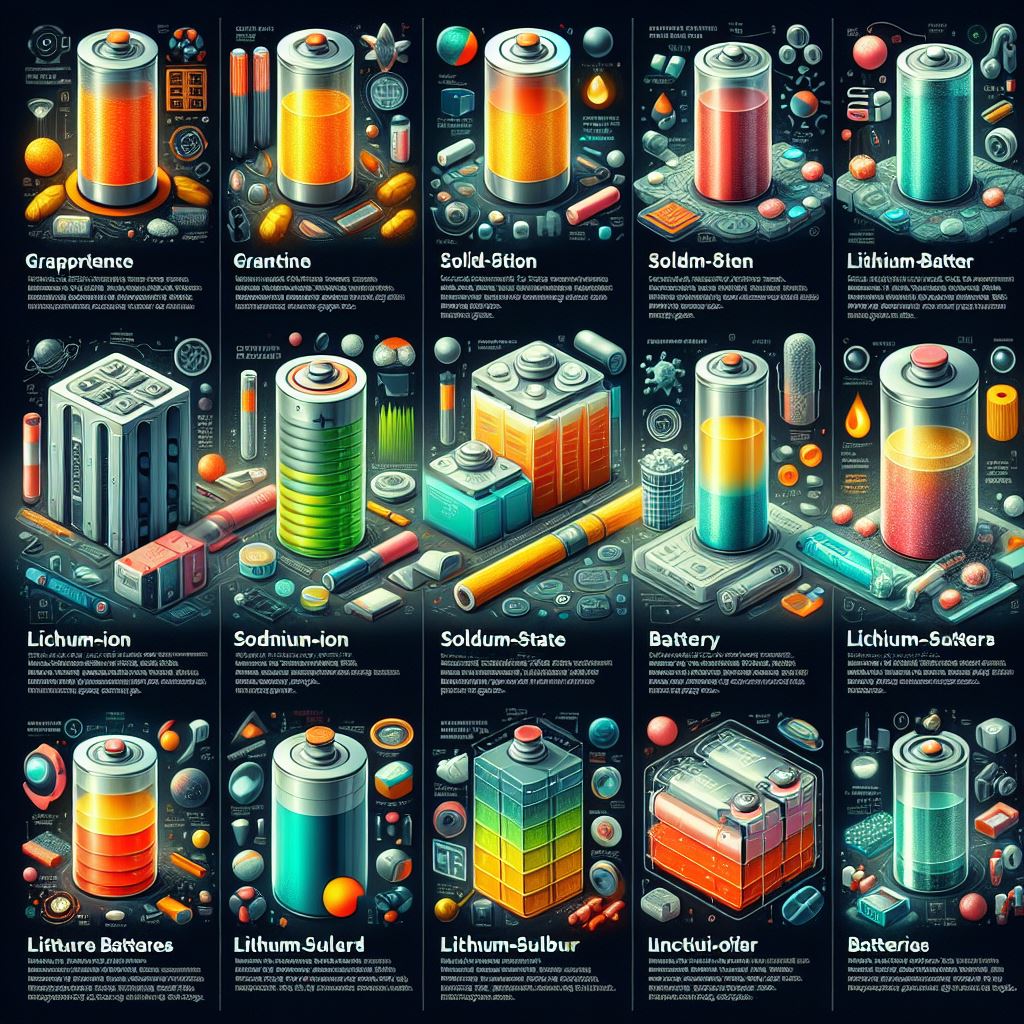The Future of Battery Technology: A Revolution on the Horizon

The world is facing a critical juncture in its energy journey. The need for sustainable and efficient energy solutions is more pressing than ever, and battery technology stands at the forefront of this crucial transition. From powering electric vehicles to storing renewable energy, batteries are poised to fundamentally reshape our energy landscape.
This blog post delves into the exciting world of future battery technology, exploring its groundbreaking advancements and their profound impact on various sectors. We will uncover the potential of disruptive technologies like solid-state batteries and lithium-sulfur batteries, while examining their implications for transportation, energy grids, and beyond.
Join us on this exploration as we unveil the secrets of the future, where batteries are not simply a means of storing energy but a key driver of a more sustainable and prosperous world.
Decoding the Future of Battery Technology: What Makes it Revolutionary?
The future of battery technology holds the key to unlocking a world of possibilities. But what exactly makes it so revolutionary? Here, we delve into the core attributes driving this exciting transformation:
1. Improved Specific Energy and Energy Density:
This translates to more energy stored per unit of volume and weight. Imagine driving an electric car for hundreds of miles on a single charge, or powering your entire home with a compact battery pack. This is the transformative power of improved energy density.
2. Longer Lifetime:
Batteries are no longer the Achilles’ heel of electronic devices and vehicles. Advancements are leading to batteries that can endure thousands of charge cycles, lasting significantly longer than their predecessors. This translates to reduced waste and increased cost-effectiveness.
3. Enhanced Safety:
The fear of battery explosions and fires is fading into the past. Future battery technologies boast improved thermal stability and reduced flammability, making them safer for everyday use and paving the way for widespread adoption.
These three fundamental advancements are not just improvements; they are game-changers. They are rewriting the rules of the energy game and opening doors to a future where batteries are not just power sources, but enablers of a sustainable and prosperous world.
The Power Revealed: Unveiling the Technologies Shaping the Future of Batteries
The future of battery technology is not just a promise, it is a reality being forged by groundbreaking advancements in materials and design. Let’s delve deeper and explore the technologies that are shaping the future:
1. Solid-state batteries:
These revolutionary batteries replace the flammable liquid electrolyte with a solid one, offering unparalleled safety and stability. Imagine an electric car that can withstand even the most extreme temperatures without the risk of fire. This is the potential of solid-state batteries.
2. Lithium-sulfur batteries:
These batteries boast an energy density ten times higher than lithium-ion batteries, unlocking possibilities beyond our current imagination. Imagine electric vehicles with a range exceeding 1,000 miles or drones capable of traversing continents. This is the transformative power of lithium-sulfur technology.
3. Lithium-metal batteries:
Pushing the boundaries even further, lithium-metal batteries offer the ultimate in energy density, paving the way for electric aircraft and long-duration energy storage solutions. Imagine air travel powered by electricity or entire cities fueled by renewable energy stored in these powerful batteries.
4. Beyond lithium:
Researchers are exploring alternative materials like sodium, potassium, and magnesium for battery construction. These alternatives offer the potential for lower cost, higher sustainability, and potentially even greater energy density. Imagine batteries made from readily available materials, powering our world in a more sustainable way.
These technologies are not mere concepts; they are actively being developed and refined in laboratories and research facilities around the world. Their imminent arrival promises to revolutionize not just one industry but many, from transportation and energy to consumer electronics and beyond.
A World Recharged: T

The future of battery technology is not just a technological marvel, it is a catalyst for a global transformation. The advancements we have explored hold the power to reshape various sectors, ushering in a new era of sustainability and innovation.
1. Revolutionizing Transportation:
Imagine a world where electric vehicles are the norm, powered by batteries that offer long range, fast charging, and unparalleled safety. This is the future that awaits us, where emissions are drastically reduced and transportation becomes more sustainable and efficient.
2. Reshaping Energy Grids:
The future grid will rely on renewable energy sources like solar and wind. To effectively integrate these intermittent sources, we need advanced battery technology for grid storage. This will ensure reliable energy supply, reduce dependence on fossil fuels, and pave the way for a cleaner and more efficient energy infrastructure.
3. Empowering Consumer Electronics:
Batteries will no longer be the limiting factor in our devices. Imagine smartphones that last for days on a single charge, laptops that can handle demanding tasks without overheating, and wearables that continuously monitor our health without requiring frequent recharging. This is the future promised by advancements in battery technology.
4. Unleashing Innovation:
The potential applications of advanced battery technology extend far beyond existing sectors. Imagine portable medical devices that can reach remote communities, sensors that monitor environmental changes in real-time, and even energy-efficient desalination plants powered by renewable energy and batteries. This is just a glimpse of the possibilities that await us in a world powered by revolutionary battery technology.
Conclusion:
The future of battery technology is not just about powering our devices and vehicles; it is about empowering a sustainable and prosperous future for all. By embracing these advancements, we can create a world where clean energy reigns supreme, innovation flourishes, and humanity thrives in harmony with the environment.
FAQs:
Q: When will these revolutionary batteries become available?
A: The timeline for commercialization varies depending on the technology. Solid-state batteries are expected to hit the market within the next few years, while lithium-sulfur and lithium-metal batteries are still in the development stage.
Q: What are the challenges to widespread adoption of these technologies?
A: Cost and scalability are two major challenges. However, ongoing research and development are continuously reducing costs and improving manufacturing processes.
Q: How can we ensure the sustainable development and deployment of battery technology?
A: Responsible sourcing of materials, efficient recycling processes, and robust regulations are crucial for ensuring sustainability. Additionally, promoting education and awareness about battery technology is essential for responsible use and disposal.
The future of battery technology is brimming with possibilities, offering a glimpse into a brighter, more sustainable tomorrow. Let us embrace these advancements and harness their power to create a world we can all be proud of.
Leave a Reply